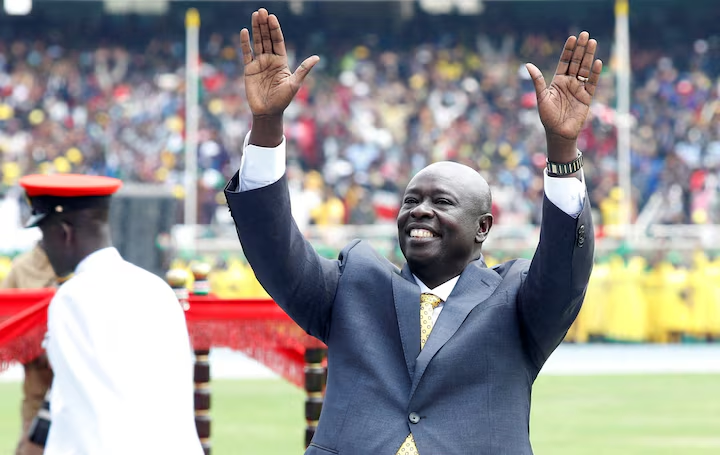
NAIROBI, Sept 30 (Reuters) – Kenyan lawmakers plan to launch impeachment proceedings against Deputy President Rigathi Gachagua, accusing him of undermining the government, parliament’s majority leader said, reflecting a widening rift between President William Ruto and his deputy.
The move could add to the government’s challenges after deadly months-long protests over a disputed finance bill forced Ruto to shelve the legislation in June and fire almost his entire cabinet.
“It is true there is an impeachment motion against the deputy president and as the member of parliament for Kikuyu, I have already appended my signature to it,” majority leader Kimani Ichung’wah said on Sunday.
“I will support that impeachment motion to stop a process where government is being undermined and sabotaged from within government,” he said.
Calls to Gachagua’s spokespeople on Monday seeking comment were not answered.
In recent days he has spoken of being sidelined and denied accusations linking him and associates to the unrest, calling it “a futile attempt to soil my name and hopefully create grounds for the mooted impeachment proceedings against me.”
On Sunday, he told reporters that any impeachment motion would require Ruto’s assent. “Without the president’s go-ahead, the motion cannot reach parliament. If it reaches parliament, it is the president who has authorised it.”
Gachagua commands support in Kenya’s populous central region, and efforts to unseat him could stir up discontent there, adding to Ruto’s headaches.
More than 50 people were killed in the unrest against the financing legislation, creating Ruto’s biggest crisis since he took office in 2022. Protesters opposed tax hikes contained in the bill and also demanded action against misgovernance and corruption.
As part of a major reshuffle, Ruto in July nominated four members of the main opposition party to a “broad-based” cabinet. But activists said the new government would perpetuate a tradition of leaders co-opting the opposition instead of carrying out far-reaching reforms demanded by citizens.
(Reporting by George Obulutsa, Edwin Okoth and Ammu Kannampilly; editing by Mark Heinrich)

